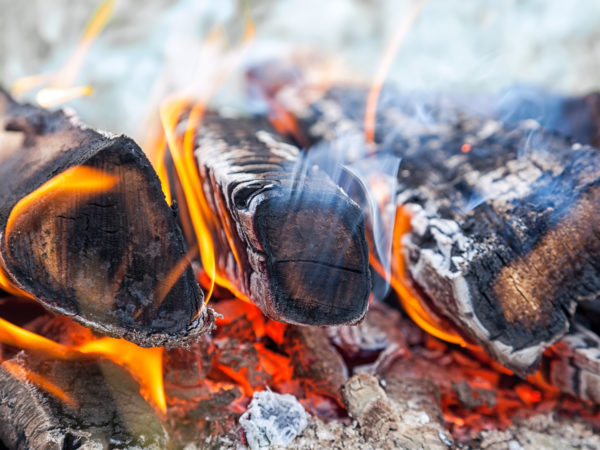Smelling Toxic Smoke?
Our neighbors have installed an outdoor wood burner (it looks like a little four-foot-tall house) that they use to heat their home. I am concerned about its health effects. We can sometimes smell the smoke in our house. What is your take on these little burners?
Andrew Weil, M.D. | December 5, 2006

Outdoor wood burners (also called outdoor wood burning furnaces) have been a response to higher fuel costs. These furnaces are housed in small sheds such as the one you describe, and heat water that circulates through underground pipes to heat a house, a swimming pool, Jacuzzi or hot tub. In some circumstances, burning wood can be less expensive than heating your house with oil or natural gas, but the price in human health can undercut the savings.
Tens of thousands of outdoor wood burners have been sold in recent years, and I know of none with effective pollution filters. As a result, the thick smoke they emit pollutes the air and can have serious health consequences. The smoke contains high amounts of particulate matter, dioxin, carbon monoxide, nitrogen dioxide, sulfur dioxide, hydrochloric acid, formaldehyde and other toxic pollutants. Exposure to just the particulate matter can worsen both respiratory and cardiovascular problems and can lead to asthma, lung diseases and cancer. To make matters worse, some homeowners throw household rubbish into the fire along with wood. Plastics and colored ink on magazines, boxes and wrapper produce harmful chemicals when burned, as do coated, painted or pressure-treated wood, plywood, particle board or any wood with glue on it. Burning leaves and other yard wastes, packing and construction materials, tires and even garbage is illegal and worsens the air pollution emitted by the furnaces.
The Environmental Protection Agency (EPA) imposes emissions standards on indoor wood burning stoves, but so far has not issued any for outdoor wood furnaces despite petitions to do so from seven northeastern states. Until the EPA acts, limits on emissions (if any) are set by state and local governments. Some localities have banned the use of outdoor wood burners when air quality is bad.
If you can smell the smoke from your neighbor’s wood burner in your house, you might be able to redirect it and get rid of it by running an exhaust fan. I would also recommend getting a HEPA filter for your house if you don’t already have one. Talk to your neighbor about repositioning the unit, and I suggest that you find out whether your state or local government has enacted emission standards for these wood burners. If not, urge your elected representatives to take action on this issue. You can also ask your representative in Congress or your state’s senators to press the EPA to set limits on emissions from these increasingly popular appliances.
Andrew Weil, M.D.









